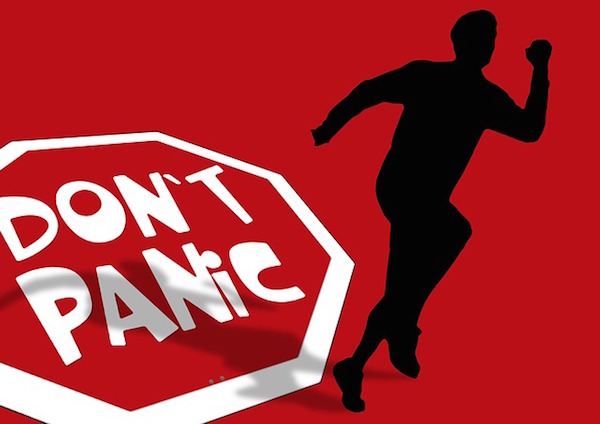
The GRE is pretty intimidating — taking a test that changes its difficulty level depending on how many questions you answer correctly can seem scary and a little dystopian at first. As such, it’s totally normal to want GRE help, especially given how important the exam is for grad school admissions.
There’s an abundance of resources for GRE test help out there, and in this article, I’ll go over the pros and cons of each one to help you decide what’s right for you.
GRE Help: Where to Start
Deciding to take the GRE is an important step, but it’s just the first step; even once you know you’re taking the test, it can still be hard to know what to do to start studying, how to know how much to study, or what to use to start studying. To make it easier, we’ve distilled down the process of figuring out just what GRE help you need into the following five-step plan.

Step 1: Set Your Score Goals
We have more detail about how to determine what’s a good GRE score for you in this article, but the quick version is that setting your score goals involves assessing the requirements of the grad school programs you’ll be applying to and shaping your GRE studying to meet those requirements.
Quick side note: we've created the world's leading online GRE prep program that adapts to you and your strengths and weaknesses. Not sure what to study? Confused by how to improve your score? We give you minute by minute guide.
You don't NEED a prep program to get a great GRE score. But we believe PrepScholar is the best GRE prep program available right now, especially if you find it hard to organize your study schedule and don't know what to study.
Click here to learn how you can improve your GRE score by 7 points, guaranteed.
If your program has score cut-offs, then obviously you’ll want to meet or exceed them. If your program provides data about average GRE scores, you’ll similarly want to meet or exceed those scores (although there is a little more leeway than with hard cut-offs, as you might be able to make up for weaker GRE scores with an otherwise strong application).
Step 2: Take a Practice Test
The best way to decide what kind of GRE help you need is to figure out where you are right now by taking a realistic GRE practice test.
If you take a practice test and discover you’re already scoring well within the range for your target grad programs, you may need less help than you thought. On the other hand, if you take a practice test and see that one or more of your scores is below what you’ll need to get into grad school, you’ll know you need GRE test help with those areas.
Step 3: Analyze Weaknesses
After you’ve taken a full-length practice test, the next step is to review all the questions you got wrong and see if there are any patterns to your mistakes.
For some test-takers, the test format itself and the time limits are what cause trouble, rather than the specific subject matter. If this is the case for you, you can address these issues by using PowerPrep (and PowerPrep Plus) in your studying and getting used to what it’s like to take a section-adaptive computerized test with a program created by the same company that administers the GRE.
For other test-takers, the issues may be with content. You must resist the urge, however, to glance at your scores, see that one score is lower than the other, and immediately go to town drilling yourself on questions in that problem subject area. To see the most improvement, you’ll need to get deeper into why you got specific questions wrong. This process can be uncomfortable, since it involves facing head-on the ways in which you were inadequate on the test, but this painful self-knowledge is the best route to an effective study plan.
Your issue on the practice test could’ve been knowledge of a particular topic, like geometry or probability, or it could’ve been a matter of being unused to the question formats on the test, like multiple-choice questions with multiple correct answers. Once you’re aware of the reasons you got specific questions wrong, however, you can then structure your studying to incorporate intensive practice for those questions.
Step 4: Make a Rough GRE Study Plan
Now that you’re armed with information about what your score goals are, what it’s like to take a practice test, and what you need to work on, it’s time to make a study plan.
Figure out your timeline for GRE studying by plotting out when your program application deadlines are and when you’re going to take the GRE. You’ll want to make sure you leave enough time to take the GRE at least once and have your scores sent before the deadlines, and may want to consider leaving enough time for a retake to increase your score, if necessary.
Given the time you have between now and when you’re taking the GRE, plan out your study schedule. Depending on how long you have to study, you may want to block out a daily time for GRE prep, or you may want to limit it to the weekends or every few days so as not to burn out.
Step 5: Decide How to Attack Your Study Plan
An important part of making a good study plan is deciding whether you’re going to self-study entirely or get outside help as well. In either case, you’ll want to incorporate both full-length practice tests and sample questions you can use to drill specific skills, outside of the context of a practice test.
You’ll also need to figure out what areas you need to focus on in your studying. Use your analysis from Step 3 to inform this decision: your resources (mental energy and time) should be pointed towards the area that will yield the greatest reward. If you missed one question on probability because you didn’t understand the content, but missed five questions on algebra because you were rushing to finish the section, then you should focus on improving your time management skills when it comes to algebra (since it will net you more points).
To build the best GRE study plan you can, pick and choose from the resources I discuss over the course of the rest of this article. The first type of resources I’m going to cover are resources for test-takers in search of outside guidance.

Guided GRE Help
If you’re completely at sea and concerned you won’t be able to structure your GRE prep in a way that makes sense and that you can stick to, then you should consider getting some extra GRE study help. Having someone outside yourself direct your studying can be helpful because it provides accountability.
Just like you might consider getting a personal trainer or taking a regular gym class, rather than planning your own workout, a GRE tutor or prep course can help provide you with purpose, motivation, structure, and guidance. In these next few sections, I’ll go over the different options for guided GRE prep.

Prep Courses
Several test prep companies offer in-person GRE prep courses. These classes can be useful if you need the motivation to prepare for the GRE and will otherwise spend no time at all studying on your own, because signing up for a prep course at least secures you the length of the prep course’s worth of exposure to the GRE.
Sitting in a class for 20-30 hours, you’ll probably absorb something more than if you spent the time instead, say, looking at pictures of dogs in suits on Instagram. A prep class should give you a basic introduction to the format of the test and maybe even the chance to do some practice questions.
On the other hand, prep classes are usually taught as one-size-fits-all and don’t leave much time for students to ask questions. There’s often an inefficient use of classroom time, with students doing drills in class while the teacher just sits there and watches them do it.
Bad or apathetic teachers are another danger that students taking prep courses have to face. Not only will a prep class with a bad teacher not help you improve your score, but it might teach you bad habits that actually decrease your score — the opposite of the result you’re hoping for!
Online prep classes are a little different from in-person prep courses, but they still have a mixture of pros and cons. If you’re taking an online class, you’ll still get the benefits of sitting through a course and absorbing knowledge by sheer exposure, and have the additional benefits (in some cases) of being able to go at your own pace. However, because of this, online classes can also be less motivating; plus, it’s way easier to get distracted during class by the internet when you have to be on the internet in order to attend class.

GRE Tutoring
Using an individual tutor is a pricier, but more personalized, alternative to GRE prep courses. Because you’re the sole student (or one of just a few students, in the case of group tutoring), the tutor can give you closer attention and customize their teaching to your specific needs.
Tutors can help you to organize your studying by scheduling when you’ll take practice tests, determining which subjects you need to focus on, and advising you how to pace yourself leading up to your test date. This can be a huge help if you lack motivation or have trouble sticking to self-imposed deadlines and schedules. Having external organization imposed upon your GRE studying by an expert is also helpful because experienced tutors are better able to assess your skill level and estimate how much you can progress and how fast. Good tutors will make sure not to push you too hard and burn you out (something I’ve struggled with when prepping on my own), or have you go too slowly and not meet your goals by the time the test comes around.
Another service that tutors can provide (and most prep courses can’t) is subject-specific GRE help, tailored to your individual needs as a test-taker. For instance, if you struggle with reading comprehension, you could work with a tutor intensively to bring your skill up to the level required by the grad programs you’re applying to. The type of tutor you choose for this subject-specific GRE help, however, should match directly with the needs you’re trying to fulfill. If you only need someone to help you bring up your GRE Verbal score, you shouldn’t waste your time and money on an experienced tutor specializing in GRE Math who doesn’t have much experience teaching verbal skills.
One major issue with tutoring is that there’s a wide variance in quality among tutors, and it can be hard to determine which tutors are effective and worth the money. If you don’t hire the right person, you might end up hiring someone to hang out with you while you take a practice test, which means you’re basically paying them to babysit you – not a good use of anyone’s time. Plus, because tutors charge hourly, they have the incentive to bill as much time as they can, rather than help you as efficiently and effectively as they can, so an unscrupulous tutor can end up being both expensive and ineffective.
Want to improve your GRE score by 7 points? We have the industry's leading GRE prep program. Built by world-class instructors with 99th percentile GRE scores, the program learns your strengths and weaknesses through machine learning data science, then customizes your prep program to you so you get the most effective prep possible.
Try our 5-day full access trial for free:

GRE Help for the Self-Studier: Free and Paid Online Resources
Rather than using a tutor or prep course, you may choose to study for the GRE on your own. If you’re a self-motivated studier, this method has the advantage of being cheaper and more customizable than other methods, since you are both the teacher and the only student in your own personal GRE “class.”
Taking advantage of free online resources is a great way to study for the GRE on your own, but, as with anything, the quality of these materials varies wildly. I’ll go over my shortlist of the top resources to use in the next few sections.
Official ETS GRE Test Help
The best online GRE resources are ones created by the makers of the test, ETS. This is not because ETS is inherently more skilled at testing math and verbal knowledge, but because, as makers of the GRE, they can create practice tests and questions that are the closest to what you’ll see on the real GRE.
The number one official resource to use when it comes to studying for the GRE is a free software package called POWERPREP Online. Made by ETS to mimic actual testing conditions, this online program is the closest free simulation of the computer-based GRE you’ll find. PowerPrep includes two section-adaptive practice tests as well as a test preview tool you can use to familiarize yourself with the test without using up one of the practice tests. To learn more about how to take advantage of this great resource, read our article all about PowerPrep.
The next best free resource after PowerPrep are the series of GRE practice test PDFs ETS has put out over the years. These practice tests include questions not found in PowerPrep, so they’re a good source for additional free official questions once you’ve gone through both the PowerPrep practice tests. If for some reason you’re unable to use PowerPrep, you can also straight-out use these PDFs as practice tests; just be aware that because the PDFs are meant as prep for the paper GRE, the timing and number of questions per section is a little different. You can find links to all of these practice tests PDFs in this article.
In addition to the practice test PDFs, there are a couple of other official PDFs available on the ETS website. The Math Review PDF provides a good review of concepts covered on GRE Quantitative Reasoning, which is helpful if it’s been a while since you took a math class. The practice questions in the PDF are only useful for review of the concepts, however – for actual GRE Math questions, you’ll need to use a practice test or the official GRE Quantitative Reasoning practice question book (more on that later). The Math Conventions PDF contains no questions at all, and is mainly useful if it’s been a while since you’ve done math and need to brush up on the standard measurements and definitions for terms used on the test (e.g. on the GRE one billion = 1,000,000,000).
If you’re in search of practice for the Analytical Writing section of the GRE, then look no further than ETS’s pools of essay topics. ETS has published the complete collection of essay topics that will ever appear on an Analytical Writing section for free online, making the topic pools the only source of GRE Writing questions you’ll ever need for practicing the GRE essays. Read some of our other great GRE Writing-focused articles to learn more about how the essays are scored and what a good GRE Writing score is.
Another useful study tool for the Analytical Writing section is the paid service ScoreItNow!, which allows you to get certain practice essays scored by the real GRE essay grading system, e-rater. The major downside to this service is that it costs $20 for every two essays you get graded, and there are currently only six official GRE prompts to practice with. However, if you’re concerned that you’re not correctly assessing your essays and want to get a feel for what the e-rater will say about your writing, it might not be a bad investment to try it out at least once (for a set of two essays graded).
More recently, ETS made two paid online adaptive practice tests available as part of POWERPREP PLUS Online. With a price tag of $39.95 per test per use (you can only take a test once per purchase and it expires after 90 days), these tests are definitely not in everyone’s study budget. However, if you can swing it, you’ll get two more unique computer-adaptive GRE practice tests that also include scoring of your Analytical Writing essays and answer explanations for every question.
Finally, there’s the paid official GRE mobile app. The app consists of 52 questions, all taken from the Official Guide to the GRE revised General Test, that you can quiz yourself on; the results of the quizzes are organized by question type. To get access to the other 254 questions, you must buy an in-app expansion (that costs nearly four times the cost of the original app).
Because it has no original content, I don’t recommend the app – it’s a far better value to just buy the ETS Official Guide and get access to all the practice questions (plus full-length practice tests) that way. The only reason to get the app is if you want official GRE prep on-the-go that’s prepackaged as an app and you don’t plan on using the ETS Official Guide at all in your studying. You can read more about the details of the GRE mobile app in this article.

Unofficial Free and Online GRE Resources
Along with the official ETS online resources, there are some useful unofficial websites geared towards helping you prepare for the GRE. ETS itself recommends using Khan Academy, a non-ETS website, for supplemental GRE math studying. Some topics are covered in the Khan Academy videos that are not covered on the GRE, so you certainly shouldn’t rely on them solely for GRE study help. However, the explanations of concepts and skills are still useful for learning material you’re unfamiliar with or need a refresher on. You can find out more about how to use Khan Academy when studying for the GRE here.
If you’re more in need of help when it comes to sentence equivalence and text completion questions, then unofficial GRE vocabulary quizzes may be the way to go. Be aware, though, that knowing the definitions of words isn’t necessarily the same as being able to use them in the sentence. As we recommend in our article about GRE vocab quizzes, you should prioritize good-quality quizzes that test you not just on what the word means, but on how to use it in the context of a sentence.
One other type of online resource that’s a useful addition to the official GRE prep materials is the unofficial free GRE practice test. The best of these is the one created by Manhattan Prep. The test is section-adaptive, just like the real GRE, and the questions are close to official quality, making it a good fifth practice test to turn to if you’ve exhausted all four of the official options. The free online practice test CATPrep is the next tier down, since while the questions are okay quality, it’s shorter than the real GRE and suffers from an inaccurate distribution of question types within each section.
The majority of other free online GRE practice tests out there, including the ones from MyGRETutors, McGraw-Hill, and Kaplan, all have serious flaws, whether it’s usability (lacking a calculator or browser window resizability) or content (unrealistic questions). Be sure to read our guide to GRE practice tests to get the specifics on where each test succeeds (and fails).

Prep Books for GRE Study Help
Official and unofficial prep books are a solid addition to a rigorous GRE study regimen. One huge plus is that these books are often not just good sources of practice tests and questions, but also useful ways to teach yourself material that you don’t know or need a refresher on.
The main problem with relying on books as your primary source of study material is that it can get expensive, particularly if you start stockpiling prep books without planning out what you’ll use them for. Below, I’ll go over the top prep books to look into for GRE test help and what purpose each is best suited to.
Official GRE Prep Books
The Official Guide to the GRE revised General Test is the best GRE prep book available for any test-taker who wants more official questions and practice tests. The Official Guide not only has two official full-length practice GRE tests (not the same as the ones included in PowerPrep or PowerPrep Plus), but also has practice questions, arranged by difficulty level and question type.
For test-takers who want even more questions to drill with, the books of Official GRE Quantitative Reasoning Practice Questions and Official GRE Verbal Reasoning Practice Questions are great choices. Each book contains 150 official practice questions, which makes these books great for practicing specific skills outside of the context of a practice test.
Unofficial Prep Books
If you’re worried about running out of official GRE prep material, there are also some useful unofficial prep books. They’re not as good as the official prep books because they’re not created by the same company that releases the test and held to those same internal standards and quality checks, which means the questions and practice tests just aren’t going to be as realistic as official questions. While unofficial books shouldn’t be used instead of official ones, however, they make fine additions to an exhaustive GRE study plan.
As with unofficial online practice tests, the best unofficial prep books currently come from Manhattan Prep. The 5lb Manhattan Prep book has high-quality practice questions for drilling specific skills, divided by difficulty level (easy, medium, hard). This book is particularly useful if you’ve already run through (or expect to completely exhaust) the Official Guide and practice question books. The only caveat here is that you should avoid using any of their Analytical Writing prompts — since there are 328 official GRE essay prompts available online for free, practicing with unofficial essay prompts will do you no good.
By contrast, the strategy guides from Manhattan Prep are more useful for building up specific skills like algebra and number properties than for practicing with GRE-level questions; they do have some practice questions, but the majority of the guides are spent building you up to the level of the GRE, rather than providing GRE-level questions to drill on (as the 5lb book does). One other major perk to buying one of the Manhattan Prep strategy guides is that it gives you yearlong access to six online section-adaptive practice tests. We go into more detail about the pros and cons of the strategy guides in this Manhattan Prep book review.
The other set of unofficial prep books that are a good option for GRE test help are published by Barron’s. The Barrons’ GRE book includes two practice tests and many practice questions, while Barron’s 6 GRE Practice Tests includes additional practice tests. Both of these books are somewhat useful for students looking to do as many practice questions and tests as possible during prep. However, some of the practice questions don’t always test you in the same way the real test would, putting the Barron’s books in third place behind the official GRE prep books and Manhattan Prep’s offerings. Read more about the specifics of Barron’s GRE prep books in this review.

Want to improve your GRE score by 7+ points?
Check out our best-in-class online GRE prep program. We guarantee your money back if you don't improve your GRE score by 7 points or more.
PrepScholar GRE is entirely online, and it customizes your prep program to your strengths and weaknesses. We also feature 2,000 practice questions, official practice tests, 150 hours of interactive lessons, and 1-on-1 scoring and feedback on your AWA essays.
Check out our 5-day free trial now:
Conclusion: Finding the Best GRE Help for You
In this article, I’ve gone over a lot of different resources you can employ during the course of prepping for the GRE. It’s easy to get overwhelmed with the enormous number of options available, especially if it’s been a while since you had to do any kind of standardized test prep. To help figure out what the best options for you are, I’ve created a sort of GRE prep triage below, with a series of questions you can ask yourself.
#1: Are you motivated to study on your own and confident in your abilities to meet your score goals?
If yes: Choose self-study.
If no: Choose GRE prep courses or individual GRE tutoring.
#2: How long are you planning to spend on GRE prep?
Less than 20 hours: Stick to official ETS materials (paid and unpaid) only, including PowerPrep, the GRE PDFs, the GRE essay topic pools, and the three official GRE prep books. Optional: PowerPrep Plus.
20-40 hours: Use all available official ETS materials as well as some free unofficial materials (like Khan Academy, free online vocab quizzes, and the free online Manhattan Prep test).
40 hours or more: Use all available ETS materials and as many of the unofficial materials as you feel are worthwhile (including unofficial GRE prep books).
#3: What do you need help with on the GRE?
Learning specific content: Use unofficial resources like Khan Academy and vocab quizzes and unofficial GRE prep books like the Manhattan strategy guides and Barron’s GRE. Consider getting a tutor to help you with specific topics like reading comprehension or data analysis questions.
Drilling practice tests and questions: Use PowerPrep, official GRE PDFs, pools of GRE essay topics, PowerPrep Plus, and the three official GRE prep books. If you go through these, add Manhattan 5lb book, Barron’s GRE and Barron’s 6 GRE practice tests. If you’re concerned about Analytical Writing, consider adding ScoreItNow!
General familiarity with the test format and content: Go to PowerPrep Online, read through the ETS website. Consider a prep course if you lack the motivation to get exposure to the test on your own.
Don’t be afraid to mix and match different GRE prep resources as fits best into your budget, time, and studying style. There is no one single path to getting a good GRE score that will work for every test-taker, so experiment to find out what works for you!

What’s Next?
Still not exactly sure what to expect from the test? Learn more about what’s on the GRE here.
Ready to dive into some subject-specific GRE prep? Plunge into the cold, yet refreshing waters of knowledge with our guides to GRE Verbal practice and GRE Math practice.
Need help forming your own study plan? Plan out how far in advance you should study with our article on how long to study for the GRE, and then get into the nitty gritty of how to max out your score with our GRE study guide.
Ready to improve your GRE score by 7 points?
We've written a eBook about the top 5 strategies you must be using to have a shot at improving your GRE score.
Download it for free now:

